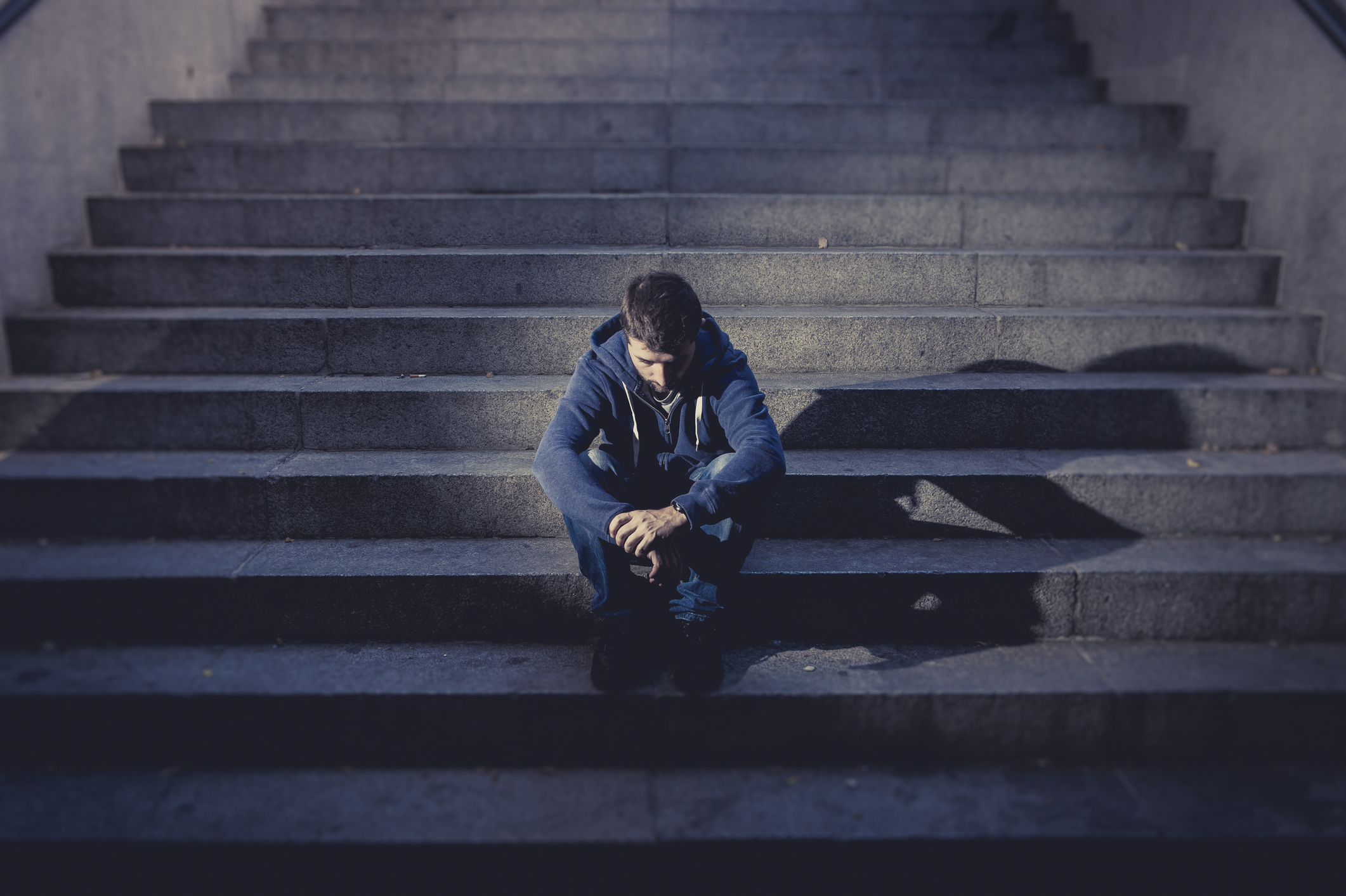
(This content is being used for illustrative purposes only; any person depicted in the content is a model)
Author: Justin Mckibben
Anyone who has ever been both alive and awaken will experience feelings of being down. Negative emotions and difficulty with feeling them is part of life. Being conscious means dealing with the duality of living, but when emotions like helpless despair and hopelessness get control and won’t let go, you may be suffering from depression.
We all experience pain. We all deal with desperate times. But sometimes, we will eventually ask ourselves- do I have depression?
Depression is a complex issue that many people struggle with, and some people experience the grip of depression in different ways. The truth is, according to the National Institute of Mental Health (NIMH), depression is one of the most common mental health disorders in the United States.
Do I Have Depression: The Definition
Because people experience depression differently, there are different forms of depression. Specifically we will focus on what the NIMH calls major depressive disorder or clinical depression.
According to NIMH Major depressive disorder/clinical depression is-
“a common but serious mood disorder. It causes severe symptoms that affect how you feel, think, and handle daily activities, such as sleeping, eating, or working. To be diagnosed with depression, the symptoms must be present for at least two weeks.”
Some other variations of depression can develop under unique circumstances. These include but are not limited to:
- Persistent depressive disorder
- Perinatal depression
- Psychotic depression
- Seasonal affective disorder
- Bipolar disorder
There are other specific forms of depression recognized by the mental health community, but in general the common link is the feelings experienced during depressive periods.
Do I Have Depression: The Experience
In general, some describe depression as the feeling of living in a dark abyss or with a sense of impending disaster. Other people describe depression as a feeling of lifelessness, emptiness and apathy. Restlessness and anger are also common feelings associated with depression, particularly in men.
Over-all, the primary difference between depression and everyday sadness is that it can feel almost impossible to function when suffering from depression. It dominates daily life and impedes the individual’s ability to complete regular tasks. Just getting through a day can be overwhelming.
Probably one of the most unhelpful aspects of any discussion on depression is the stigma attached to it, because many people expect that depressed people are always walking around sad. Stigma shapes this image of people with depression being unkempt and gloomy, but the reality is so many people struggle with depression behind bigger smiles and a lot of people never notice.
Do I Have Depression: The Symptoms
While depression may not be as easy to spot as the stigma would have us believe, there are symptoms that may indicate a deeper issue with depressive disorders. The following signs and symptoms are common for people with depression:
- Pessimism
- Hopelessness
- Helpless
- Irritability
- Restlessness
- Guilt
- Worthlessness
- Consistently sad, anxious, or “empty” mood
- Loss of interest or pleasure in things you care about
- Fatigue and decreased energy
- Difficulty concentrating, remembering details, or making decisions
- Difficulty sleeping, early-morning awakening, or oversleeping
- Appetite and/or weight changes
- Thoughts of death
- Suicidal thoughts or suicide attempts
- Aches or pains, headaches, cramps, or digestive problems that do not ease even with treatment
Not everyone who is depressed experiences every symptom on this list. An individual may only experience a few symptoms, while others may experience many. The frequency of signs may be a good indication as well. You may be suffering from depression if you experience these symptoms:
- Most of the day
- Nearly every day
- For at least two weeks
But a diagnosis of depression isn’t something to take lightly. There is a process best taken with professionals to get a clear and thorough understanding of what you are experiencing. The severity and frequency of symptoms and how long they last will vary depending on the individual and their particular disorder. Symptoms may also vary depending on the stage of the disorder. It can also co-occur with other medical illnesses and disorders, such as:
- Diabetes
- Cancer
- Heart disease
- Parkinson’s disease
- Substance use disorder
Dual diagnosis is important in order to fully understand how each illness impacts the other, and how to best treat the individual.
Do I Have Depression: What Do I Do?
Depression can be treated, even in the most serious and seemingly helpless cases. The sooner someone is able to get treatment, the more effective it can be. Many times depression is treated with psychotherapy, and sometimes with medication. Most would say that any medication should only be utilized in combination with some form of therapy, because antidepressants are not a cure. Also, this kind of treatment must be done at the prescription and direction of a physician, as most of these medications are powerful and sometimes dangerous.
Medication can also be especially dangerous for those struggling with substance use disorder. The truth is, most people who struggle with drugs or alcohol are also struggling with a mental health disorder like depression, and many times they self-medicate or abuse their medication which only magnifies the issues.
If you’re asking- do I have depression- then the best thing to do is to contact a mental health professional. Getting a diagnosis is essential to determining how to get the help you truly need. For those suffering with dual diagnosis like depression and addiction, the method of treatment is crucial to the recovery process.